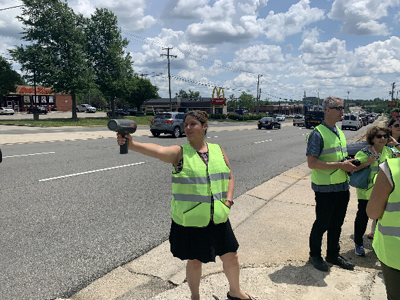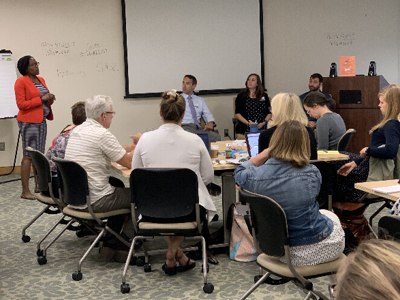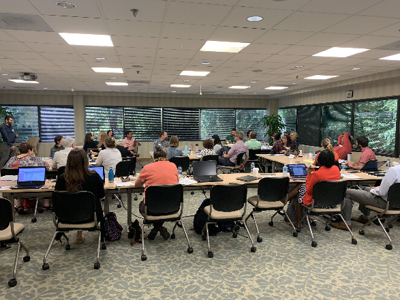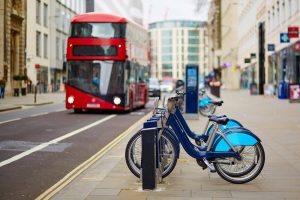 The built environment is where we live, work, and play. It can include anything from roads, utilities, infrastructure, buildings, furnishings, and open and public spaces. These spaces directly impact a population’s health.
The built environment is where we live, work, and play. It can include anything from roads, utilities, infrastructure, buildings, furnishings, and open and public spaces. These spaces directly impact a population’s health.
Many Virginians are at risk for developing chronic diseases. This is due to health behaviors that are influenced by a built environment. Some environments can limit accessibility to nutritious foods and opportunities for physical activity. Low income and Black, Latino, and other ethnic minority communities are most negatively affected by their built environment.
One of our priorities is to improve walkability in cities, towns, and neighborhoods. Our work focuses on improving walkability through active transportation, health equity, and transportation equity. To do this, we work closely with the Virginia Department of Transportation.
Prioritizing Active Transportation, Health, and Safety in Virginia (PATHS)
Launched in 2019, Prioritizing Active Transportation, Health, and Safety in Virginia (PATHS) is an ongoing collaboration of staff representing the Virginia Department of Health (VDH), Virginia Department of Transportation (VDOT), other state agencies, nonprofits, and advocacy groups throughout the Commonwealth.
Through PATHS, Virginia is working to create a blueprint for improving active transportation and transportation access through the lens of health equity and transportation justice. PATHS seeks to create a framework for localities and regions to leverage data, enhance multidisciplinary collaboration, and improve focus on walkability and health equity in transportation policy, plans, and projects moving forward.
Virginia Walkability Action Institute (VWAI):
VWAI works with local and regional individuals and teams to develop and implement policy, system, and environmental (PSE) changes in local communities. Our goal is to increase access to opportunities for physical activity, employment, education, recreation and more by bringing together a diverse group of professionals, advocates, and champions to address local mobility and moveability issues. Participants consist of local/regional teams and individuals. Each receive training and technical assistance, both in-person and virtually. All participants develop a detailed action plan to pursue a PSE change to improve mobility and moveability in their community.
2023 VWAI Cohort Application
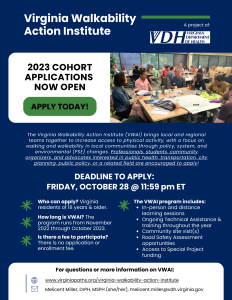 VDH is currently accepting VWAI 2023 applications between now and Friday, October 28th until 11:59 pm.
VDH is currently accepting VWAI 2023 applications between now and Friday, October 28th until 11:59 pm.
- Overview Document: Review this document to learn more about the VWAI 2022 goals, components, eligibility criteria, and application process. You can access the Overview Document here.
- Application: The online VWAI application can be found here.
Application Information Webinar: A webinar will be hosted to share more information about the VWAI, changes to the program, and how to apply. The VWAI team will also be available to respond to questions related to the VWAI and the application process. Register for the webinar here. The recording will be shared after the conclusion of the webinar. - Application Info Webinar Recording: Click here to view video.
2018-2019 Cohort 1 Members
Central Shenandoah
Chesapeake
Eastern Shore
Piedmont
Richmond City
2019-2020 Cohort 2 Members
Central Shenandoah
Central Virginia
Fairfax
Portsmouth
Prince William
2021-2022 Cohort 2 Members
Blacksburg
Charlottesville (Albemarle County)
Petersburg
Richmond
Smithfield
Smithfield (Hobson Community)

